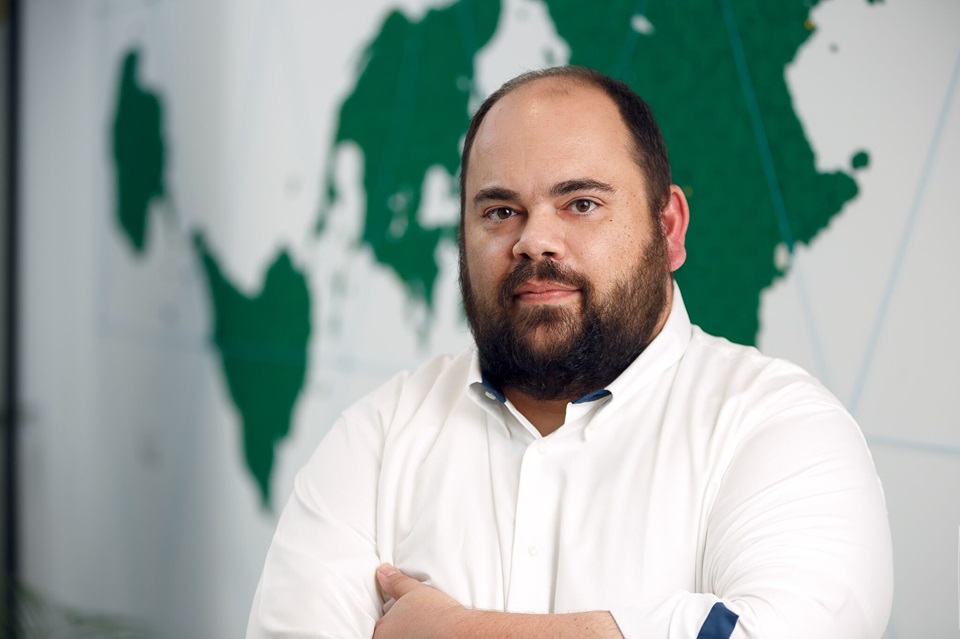INTERVIEW Vlad Craioveanu, Impact Hub Bucharest: “Romania possesses significant untapped entrepreneurial potential”

“Romanian entrepreneurs are facing a dynamic business landscape with a range of challenges. One of the most significant challenges is access to funding. We’ve seen a growing appetite for entrepreneurship in Romania, and this has naturally led to an increased need for financing. In 2022 alone, 114,000 new small and medium enterprises were created in Romania, indicating a significant interest in entrepreneurship,” Vlad Craioveanu, CEO and co-founder of Impact Hub Bucharest told The Diplomat-Bucharest.
“Many entrepreneurs rely on personal funds because they still consider non-refundable financing difficult to obtain. We are here to prove that a good idea, passion, and a solid business plan can really bring them the capital they need. Simplifying the process of obtaining grants, awards, and sponsorships is vital.
Furthermore, supporting female entrepreneurs is also critical. In Romania, we have a unique statistic – 47% of companies have women among their shareholders, unlike anywhere else in Europe. These businesses generated substantial revenues, indicating the need for further support and recognition for female entrepreneurs.”
What are the objectives of the Startarium competition for the fifth edition?
“With the launch of the fifth edition of Startarium PitchDay, we’re introducing several exciting changes and objectives. Firstly, we have a new identity for the competition, which is now called “Romanians are entrepreneurs” (“Românii sunt antreprenori“). This showcases our belief in the innate entrepreneurial spirit within Romania, that we aim to celebrate and nurture.
Our primary objective for this edition is to encourage more individuals to submit their entrepreneurial ideas. We want to challenge Romanians to register existing businesses, unleash their creativity, and show off their business acumen. Romania possesses significant untapped potential, and we’ve designed this platform to enable people from all over the country to test their business concepts, get constructive feedback, and secure non-refundable funding to transform their ideas into reality.
Additionally, we want to prove that modern businesses are more than just tech oriented. While Romania boasts a thriving tech sector with innovations in climate, ed, and food tech, we also cherish our rich heritage of craftsmanship, production, and agriculture. We would be happy to support businesses in small towns and rural areas, recognizing and nurturing this precious diversity. Our goal is to demystify the process of transforming ideas into viable businesses, making it less intimidating.
Another objective is to continue to foster connections and inspire people. We are dedicated to involving the community, whether it’s by encouraging them to support aspiring entrepreneurs, share their video submissions online, or attend a physical event on November 29 that celebrates Romanian entrepreneurial spirit. Thus, a robust presence at the November 29 event will facilitate communication and connections among participants.”
What are the most significant achievements since Startarium.ro came to life in 2016?
“When we talk about Startarium, we’re talking about a journey that’s been quite extraordinary.
Four main pillars represent the Theory of Change that sits at the foundation of our work – Learn, Practice, Allies, and Funding. At the intersection of all, entrepreneurs’ tremendous potential and ideas will be unleashed. It leads to business success and scalability in the long run. One of the biggest challenges with entrepreneurs is finding the time to allow for new knowledge to set in. Without knowledge and business acumen, it will always be challenging to make the best decisions for your business.
Plans are worthless, but planning is essential. For this reason, we created a practice ground with the right tools and insights to speed up the process from idea to execution.
Nevertheless, ideas and prototypes need people and money, which is why we bring together on our platform hundreds of professionals and mentors; we canvas the market for funding opportunities and host startup competitions with cash prizes.
Our educational platform is something we’re immensely proud of. We’ve created arguably the most comprehensive educational system for early-stage entrepreneurs in Romania. We’ve built a thriving community of almost 90,000 educated users, who have intensively utilized the educational resources in the platform. We’ve published an impressive catalog of over 1,300 articles and educational materials to support these budding entrepreneurs.
But it’s not just about education; it’s also about funding. We’ve facilitated direct access to over 840,000 euros in funding, which has played a pivotal role in turning ideas into successful businesses.
And then there’s our Startarium PitchDay competition. We’ve organized four successful editions between 2016 and 2019. Nearly 600 entrepreneurs participated in these events, and more than 150 businesses received invaluable support. What’s truly inspiring is that 35 of these businesses emerged as winners and were granted 450,000 euros in prizes.
As proof of our activity’s impact on entrepreneurs, the capacity to grow businesses that scale internationally stands out. Companies like Digitail, Kinderpedia, and XVision are examples of Startarium’s ability to nurture and propel innovative startups.”
How would you describe the evolution of Startarium in recent years?
“Our evolution in recent years has been quite fascinating. At Startarium, we’ve not only been nurturing businesses but also fostering trust within the Romanian business ecosystem.
Firstly, we’ve become a recognized and trusted entity in the ecosystem. When people think of entrepreneurship support in Romania, they often think of Startarium and our strong community of mentors and professionals. We’ve become a go-to brand for both entrepreneurs and investors, symbolizing trust and reliability.”
What challenges are Romanian entrepreneurs facing today?
“Romanian entrepreneurs are facing a dynamic business landscape with a range of challenges.
One of the most significant challenges is access to funding. We’ve seen a growing appetite for entrepreneurship in Romania, and this has naturally led to an increased need for financing. In 2022 alone, 114,000 new small and medium enterprises were created in Romania, indicating a significant interest in entrepreneurship. Many entrepreneurs rely on personal funds because they still consider non-refundable financing difficult to obtain. We are here to prove that a good idea, passion, and a solid business plan can really bring them the capital they need. Simplifying the process of obtaining grants, awards, and sponsorships is vital.
Furthermore, supporting female entrepreneurs is also critical. In Romania, we have a unique statistic – 47% of companies have women among their shareholders, unlike anywhere else in Europe. These businesses generated substantial revenues, indicating the need for further support and recognition for female entrepreneurs.
Navigating bureaucratic processes can be a significant challenge for entrepreneurs. Streamlining administrative procedures can significantly benefit the business environment.
Additionally, finding skilled talent remains essential for business growth. Developing programs to bridge the skill gap and enhance the workforce’s capabilities is crucial in this regard.
Promoting entrepreneurship education within the curriculum in schools and universities will empower individuals to innovate and explore self-employment opportunities. As our latest study released this year shows, almost 1 in 2 entrepreneurs is not investing time and resources in his/her personal development, and over 80% rely on personal experiences as a learning tool.”
How can the Romanian educational system be adapted to the needs of the labor market?
“Adapting the Romanian educational system to align with the labor market’s needs is crucial if we want to ensure that today’s new generations are prepared for requirements of the future. We need to weave strong and long-lasting partnerships between the public sector, private sector and academia that will help curricula development.
Moreover, we are keen supporters of vocational training programs that provide students with practical skills and real-world experience, making them job-ready upon graduation.
If we look at entrepreneurship education, it is crucial to encourage lateral thinking and problem-solving and to empower students to put their ideas into practice. This is essential for fostering innovation and equipping students with the mindset and skills needed for self-employment.
We strongly believe that continuous learning is essential for successful entrepreneurs and professionals. Expanding our strategic view on education from children and teenagers to other demographic groups will tap into the potential of people of all ages to continuously improve their skills and knowledge base.”
How can the private sector improve the educational process in Romania?
“The partnership between educational institutions and the private sector easily translates into internships and apprenticeships. Many companies understand these experiences are win-win: they help them identify talent early on while also improving the quality of education and creating opportunities for students.
The private sector can also play a role in supporting research and innovation in education by supporting college laboratories, research, and experiments and offering scholarships and incentives to students pursuing fields in high demand.
We notice an increasing number of businesspeople and established professionals who take on jobs as college professors, mentors, and coaches, and we admire their dedication and their desire to leave their mark on the business environment. These sorts of endeavors connect students with industry professionals and can provide valuable guidance and networking opportunities.
However, to educate an entire country we need an integrated approach, so we at Startarium are focusing on building partnerships with universities, companies, and public agencies.”















